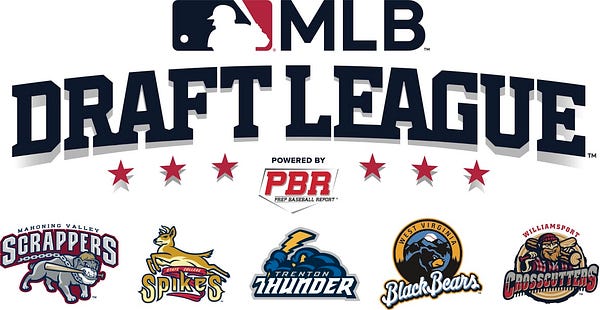Bwahaha! I’ve got to work on my evil laugh, but so does Rob Manfred. The still-current MLB Commissioner has been working on a plan called “One Baseball” for years and the COVID crisis allowed him to push it harder than he would have otherwise. The reorganization and control of the minor leagues is the most visible, but One Baseball just press-released the next phase of its plan.



Instead of a Combine, MLB is doing a league. Six teams and 68 games before the early July draft. Let’s check the calendar and the abacus on that. First, I think the rosters will be deep. There’s no way pitchers just coming off their seasons will be allowed to go five, six, seven innings on the regular, but that could turn the league into 68 showcase games of max effort.
Let’s say we have 30-man rosters, 15 pitchers and 15 players. That’s, in theory, the top 180 players in the country or about 6 rounds deep. I don’t think that’s a coincidental number, given that MLB drafted 160 players in the 2020 draft. Even if they went to 40-man rosters, I think we’re seeing exactly where MLB wants the draft to land. MLB is currently saying “at least 20 rounds”, but I think that’s one of those things that’s going to change.
To get 68 games in before the draft, which is set for July 11 this year, is May 3, 2021. (Aside - I asked Alexa to solve this for me and she did. “What date is sixty eight days before July 11th, 2021?” got the correct answer on the first try. I realized I needed to go one date more so that the league would finish on July 10th.) The first thing I’ll note is that the College World Series isn’t even supposed to start until June 19th. Will teams who go deep not have top picks move to the Draft League? Will that hurt Kumar Rocker’s chances if he stays to try and win a second time at Omaha?
I couldn’t find a top college program that had posted it’s 2021 schedule yet - for obvious reasons - but if we look at one from 2020, we can get a general idea. Here’s Vanderbilt, which had scheduled games up to May 16. Given the CWS date, I don’t think we’ll see much shift in the timing of baseball schedules, though we could see changes in how the schedule is constructed and perhaps less games.
The Draft League is, by any reasonable measure, going to start before the college season is over and well before some of the top teams are done. Going further, many high schools aren’t done. California has its baseball championships scheduled to play through June 26th.
Oh wait … you didn’t realize the high school problem, did you? 13 of the first 37 picks in the 2020 draft were high school kids and that’s a lower number than in many years. It was 17 in 2015, which I picked at random. So will high school seniors be eligible for the Draft League? If so, do they get paid? If they get paid, are they still eligible to not sign and go to college? And again, the timing puts the Draft League in competition with both high school and college.
MLB and Rob Manfred want you to believe that it’s turning everything into Summer Catch and that the myth of the Cape League can be transplanted to Trenton, State College, and oh if you don’t think they picked Williamsport for a reason, you’re not paying attention at all.
Instead, One Baseball is going to be just that. There’s no room for college or high school outside of One Baseball, so the Draft League is likely to become not the Cape, but the G League. Just as the NBA is openly coming for the NCAA, there’s a second front in that war and while few organizations deserve getting the business more than the NCAA, there’s a lot of collateral damage possibilities and unintended consequences enough to leave me queasy.
Just wait for the next Bryce Harper to push to opt out of high school for the Draft League and for top travel teams to pitch themselves as a direct path to a Trenton roster spot, which is of course picked by MLB partner Prep Baseball Report, where I just looked up the rankings for the 2024 class. (#1? Auburn commit Jackson Sanders, who’s a local.)
One Baseball is far more than just a land grab for the minor leagues. Its a grab-and-squeeze at the heart of baseball, centralizing control of the game. This could be good in ways. Credit where it’s due, MLB has done an amazing job with the Urban Academies and the RBI program. One Baseball could, if it wanted, put an emphasis on health and safety, going past pitch counts, providing quality medical, nutrition, and coaching standards, if not academizing those as well.
But One Baseball has offered none of those, yet. Perhaps it can be pressured to, though it’s resisted every attempt to pay living wages, so it often sees anything as a cost, even if its good for the game. If MLB manages to kill off MiLB and the top level of the NCAA in one fell swoop, all while centralizing ownership of the development program assets, Rob Manfred might have the best case for saving his own job yet.




